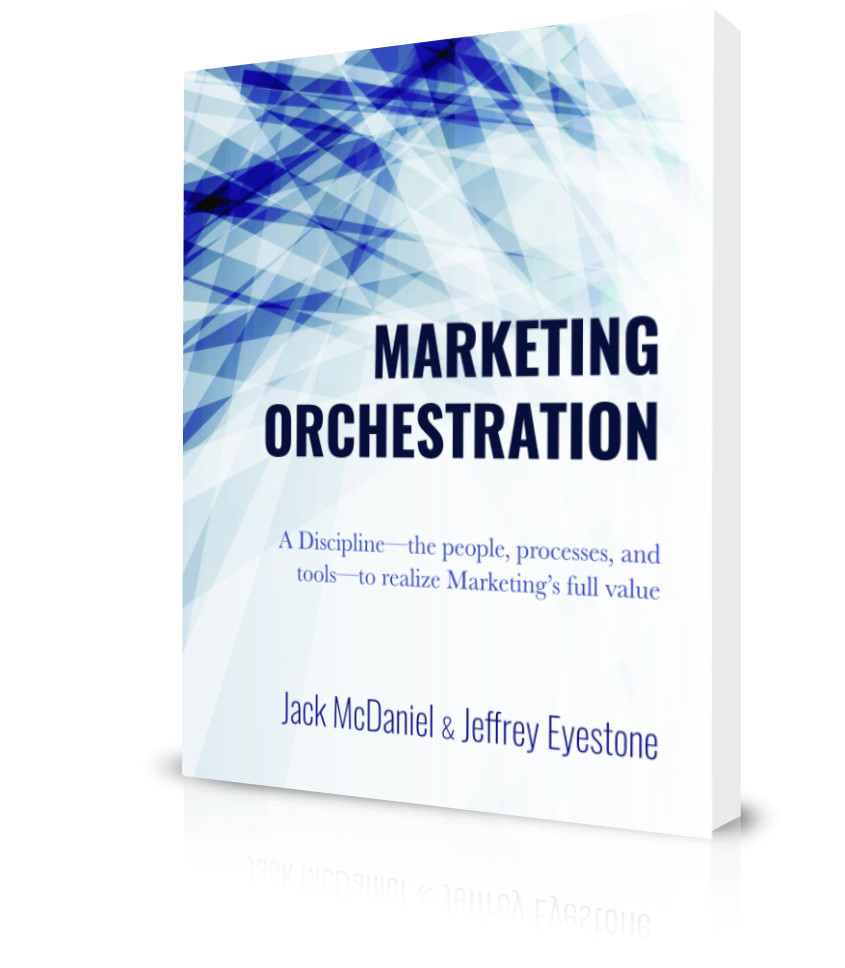- 1. Search Engine Optimization (SEO): Monitor competitor strengths and weaknesses to define opportunity and strengthen current positions
- 2. Content Creation at Scale: Build content that fills gaps and niches in the market at scale with AI’s ability to quickly produce quality content
- 3. On-Page Analytics and User Experience: Use AI’s ability to analyze huge amounts of data quickly to optimize user experiences across your website
- 4. Advertising Optimization and Efficiency: Test campaigns quickly at scale to optimize the money spent and ROI of online ads
- 5. Email Marketing Segmentation and Targeting: Utilize AI’s ability to target specific customer segments and personas to maximize performance
Artificial Intelligence: Five Marketing Tools Every Business Should Use
Artificial Intelligence is changing Marketing. The future is here and marketers who don’t embrace AI will get left behind, quickly. That statement is true for anyone in marketing—whether it is at a large multinational enterprise, or a local or regional company. AI should be a major part of your marketing arsenal.
The truth is, most CMOs have fallen behind and are not ready for the revolution that is already here. Instead of looking at AI from a distance, CMOs should be leading a company’s digital transformation. To do that, they first need to understand what is transforming Marketing and then where to utilize AI products to bring their departments into the future. That is the focus of this article.
Better Results, Faster and With More Depth
There are AI-powered tools available currently that provide Marketing teams with greater depth of knowledge, better and faster results, and a larger volume of work output versus traditional methods. The tools are here and most of them are easily affordable and relatively simple to implement.
How AI Is Changing Marketing
Given the power of AI, early adopters of the technology will fare better than those who wait. The companies who adopt it and use it well will thrive over time. Look at how AI is changing five key areas:
SEO: The AI Tools
AI-driven solutions are currently available for businesses of any size to make the most of their online presence and SEO. Search Engine Optimization is an ongoing process that changes constantly. Keeping up can be difficult for any marketing department or small business. Using AI to direct and monitor your progress means freeing your team to focus on creating great user experiences and content that turns visitors to sales. AI has the capacity to analyze your competitors and the industry in general in order to define opportunities and maximize your efforts.
Below are a few areas where AI can have a massive impact on SEO and free your team to focus more on human to human interactions.
Page Optimization
Would you like to know your content is high quality and optimized for your business and scores well for Page Authority? Every page on your website can be fine-tuned to perform based upon thousands of pages and search results studied from your industry using AI.
Content Briefs
What sort of impact would it have on your business if you received Content Briefs with key points to be made in an article and the keywords to include. Imagine how much faster and many more quality articles could be created because of these briefs. AI that analyzes your website, your competitors, and the market in general: that's valuable!
Keyword Strategy
AI can examine your industry, your competitors and your website to generate keyword lists and strategies hundreds of times faster and more accurately than any marketing team can. These keyword lists and strategies quickly become areas of opportunity.
Content Design and Strategy
AI can examine where there are holes in your current content, where your competitors are weak, and what content will have an impact on SEO. Using AI you can develop a list of articles that will rank for Natural Search, increase Page Authority, and drive visitors to relevant content.
Create Content Journeys
You can use AI to create customer journeys that can help inform what types of website visitors you are getting (personas), what they are doing, and how best to direct them to the appropriate content, or get them to take the next step (e.g. become a qualified lead by getting in touch or requesting a demo). In the tech industry, in particular, there may be many personas involved in the buying process at the enterprise level. Use AI to generate content for each persona and create a Persona Journey that leads down-funnel to SQLs and sales.
The AI That Does SEO
There are several companies whose AI can work the magic mentioned above. Finding the right fit for your company can come down to preference. Two of them are Brightedge and MarketMuse. Both companies offer powerful solutions that can take your marketing departments to another level. Both are relatively easy to use and integrate into your marketing playbook and discipline.
Content Creation At Scale
Everyone is excited about ChatGPT, as of this writing. But there are products that have been in development and used by businesses for a couple years now. Some, if not most, use OpenAI's ChatGPT as the engine that drives their app.
Why Use Content Creation AI
Content Creation AI allows your team to focus on the end result instead of worrying over how to express themselves in an article. More importantly, in technical businesses Marketing may not be capable of writing well about the subject. Content Creation AI turns them into editors who can hand finished pieces to subject matter experts before publishing, avoiding rounds and rounds of rewrites. Also, instead of creating an article a week your team can create several quality articles each week. In fact, there is no limit to the amount of great content that can be produced.
A Technical Caveat
ChatGPT is a great tool, but it has a few weaknesses. First, it was modeled on ten percent of the internet—from 2019. Tech industries can change drastically in three years. Some Content Creation AI apps learn as they go and can be trained and brought up to speed (Jasper AI). But that takes time and work. This matters when you have to create technical content. For instance, if you are an AI company then Persona Journeys for Data Scientists or Data Engineers might be beyond the ability of the AI. But those are limited cases.
A second weakness is marketing teams need to be watchful of plagiarism and being labeled as AI written content. Apps like Jasper have a framework that virtually eliminates these issues. Otherwise, you can run any article through GPTZero to detect issues of plagiarism.
Prepare Before Using Content Creation AI
Before you signup for a content creation service you need to prepare. You need a plan of action and a discipline established to make certain your team is creating quality content that rates in search engines and doesn't fall into the plagiarism trap.
If you are using a product like MarketMuse then you have an advantage over others. MarketMuse will create content briefs based upon its analysis of the market and your needs. You can use those briefs to tailor content. Preparing to create content means:
- Writing a brief intro and summary of the article
- Developing a list of bullet points to cover
- Understanding how and where you are going to use the content
Once the strategy, procedures, and discipline are in place the task becomes straight-forward. Teams can ramp up content creation quickly.
The Content Creation AI Apps
There are a couple content creation apps that work for most businesses. ChatGPT can be used by itself. Others, like Jasper and Friday have frameworks built around various types of writing, including social media posts, blogs, and product posts. Those frameworks can be real handy for teams. Also, you can use MarketMuse to help create headlines for the various types of posts.
On-Page AI
It isn’t enough to create great blog posts or social media content. The main pages of your site need to be optimized to deliver your message and to rise in Natural Search results. Products like Brightedge and MarketMuse can examine all of your competitors and suggest the best content and wording to win the SEO game. These apps also measure engagement and constantly learn to deliver great results over time.
As an alternative, or in addition to, the newest version of Google Analytics (GA4) offers insights regarding the pages of your sites, how to engage better. Using GA4 in conjunction with either of the products mentioned above can add real power at scale to the data you are receiving.
Your design and layout impact how well visitors engage with your content. See this article to learn more regarding how we use the internet.
Advertising Optimization AI
Using AI you can segment audiences, build ad copy and creative pieces, test ads for effectiveness (better conversion rates), optimize ROI and more all in real-time. The AI can learn quickly and at a scale humans can’t match. It can monitor results and make adjustments before a marketing team can even analyze some of the numbers. Just as important, AI can find patterns and see how and where they impact sales and then take advantage of them.
Advertising AI Tools
The tool you choose for this can be dependent upon where you advertise and your industry. Some tools are great for e-commerce sales and advertising while others work better for enterprises where the sales process is longer and more complex.
Albert AI can manage your ad creative while dramatically increasing Return on Ad Spend (ROAS) through extensive testing of different combinations of wording, color, etc. The software works autonomously once your team has set it up and put it in motion.Email Campaign Targeting
Using AI in email marketing can drastically improve three key metrics: Revenue, Click-through Rates, and Open Rates. These results are bound to AI’s ability to personalize delivery and content. AI can segment your customer base to provide a better experience.
Revenue
Personalized emails add value and are six times more likely to be transactional. Segmented emails—by customer type or persona—fit this category.
Click-through Rates
AI can automate content creation for email campaigns. This does multiple things to drive revenue and reduce costs. First, AI generated content increases click-through rates, which means more transactions and higher revenues. Second, AI automation takes little time and your team can bring to market more email campaigns that are focused, relevant, and effective, lowering costs and driving revenue.
Open Rates
AI can write subject lines that get better results than humans can. That means higher open rates.
Email Marketing AI Tools
There are many email marketing tools available that use AI. Most likely, your current tool has some capabilities. Two services you might consider are Omnisend and EmailOctopus. Before considering any of them, understand your needs and the features that are a must-have for your organization.
Ready for More?
AI for the five areas discussed above can be implemented by any size company to maximize their efforts online. But there are other AI applications and solutions that can impact your business. If your company is heavily into Social Network marketing there are AI solutions for that. Does your business cross national boundaries and cater to several languages? There are Natural Language Technologies (NLT) to help identify where someone is located and then deliver website pages in their language of choice. Literally, the landscape is endless and filled with opportunities for Marketing professionals to move their organizations into a new era.
Conclusion
Artificial Intelligence marketing tools are changing the game. Companies who adopt them will have a massive advantage moving forward. The good news is you don’t have to be a large corporation to benefit from AI in marketing. Any size company can use AI to build content at scale, use SEO AI to better understand the competition and their own brand, optimize user experiences, and scale up advertising that increases ROAS. It’s all available now. AI isn’t the future. It should be part of your business and marketing process and discipline today.
Learn more about our Marketing Engineering Framework and Discipline
Download the free eBook (PDF) HERE »







 Jack McDaniel has been a great resource to CognitiveScale. He has helped build out a new website, write content, and develop a management dashboard to help us track Marketing KPIs. He quickly understood our business and contributed to writing and editing content, which has always been a challenge for us given the complexity of our technology. Jack was able to dive right in and contribute to our new messaging, and then translate this to SEO, advertising, and a number of Marketing campaigns. And his work drove results that were very valuable."
Jack McDaniel has been a great resource to CognitiveScale. He has helped build out a new website, write content, and develop a management dashboard to help us track Marketing KPIs. He quickly understood our business and contributed to writing and editing content, which has always been a challenge for us given the complexity of our technology. Jack was able to dive right in and contribute to our new messaging, and then translate this to SEO, advertising, and a number of Marketing campaigns. And his work drove results that were very valuable."
